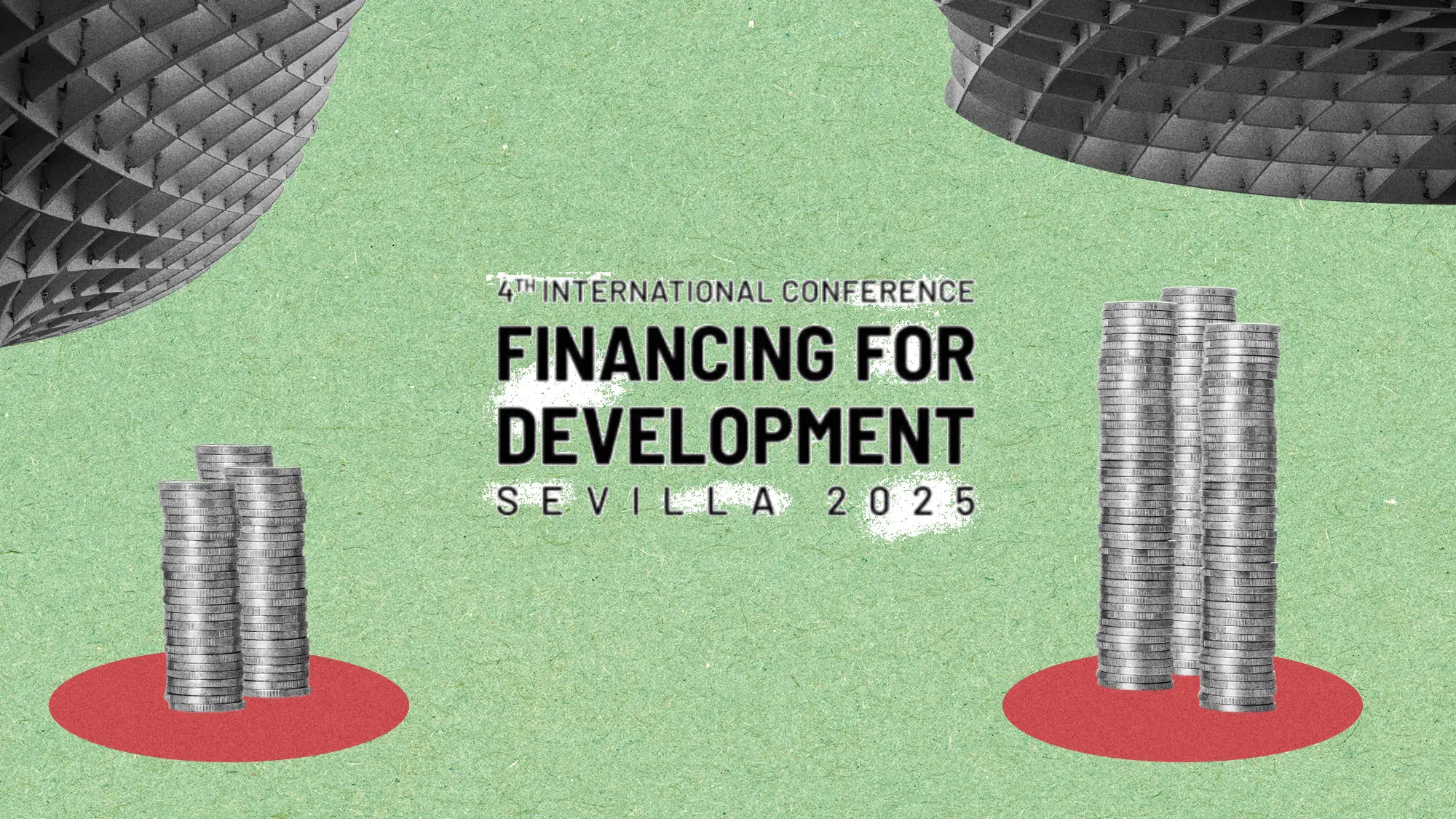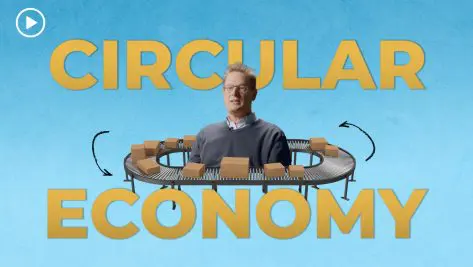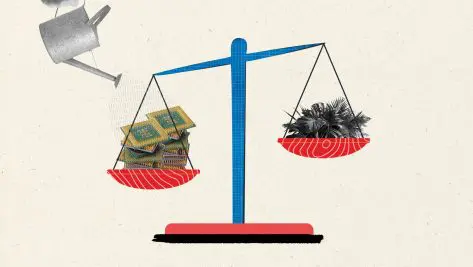As the world’s attention is dominated by wars and inflation, a somewhat overlooked conference in Spain this summer might actually determine whether developing countries can service their mounting debts, strengthen their tax systems, or access crucial climate finance. The Fourth International Conference on Financing for Development in Seville may not be grabbing headlines, but the decisions made there might have the power to affect billions of lives. From June 30 to July 3, this crucial gathering (FfD4) will offer a historic opportunity to redefine the rules of the international financial system in order to build a more equitable and resilient future for many countries.
This is no ordinary policy conference. Seville represents a pivotal moment to either transform an increasingly dysfunctional global financial architecture or cement existing inequalities for generations to come. The stakes could not be higher, nor the choice more clear.
The First Draft Document that will guide discussions in Seville highlights a concerning reality: the annual development financing gap now exceeds $4 trillion. This figure underscores the urgency of mobilizing additional resources —both public and private — to accelerate progress toward achieving the Sustainable Development Goals. But beyond the diagnosis, Seville must serve as the starting point for a profound transformation of the global financial system.
This transformation has become all the more urgent as traditional funding sources start to dry up. In recent weeks and months, countries such as Germany, Belgium, the United States, France, the Netherlands, the United Kingdom, and Switzerland have announced cuts to their Official Development Assistance (ODA), with the most extreme case being the United States, which has temporarily, but almost completely, shut down its cooperation activities. These reductions, which have been at times dramatic, signal the collapse of the conventional financing model that has prevailed for decades.
One of the pillars of this transformation is the strengthening of national public resources. In many low- and middle-income countries, tax systems remain weak, severely limiting the state’s ability to invest in essential services. The difference is stark: while in high-income countries tax revenues account for more than 35% of GDP, in low-income countries they barely exceed 13%. This fiscal gap is further worsened by tax evasion, avoidance, and illicit financial flows, which result in losses of up to $800 billion annually. These aren’t just abstract numbers—they represent schools not built, vaccines not purchased, and infrastructure not developed.
It is also crucial to integrate the informal sector, which represents 58% of global employment and, in some countries, up to 90%. Strengthening tax systems, integrating the informal economy, and empowering public development banks must be a shared priority.
But the State cannot — and should not — act alone. The private sector, both national and international, plays a central role in closing the financing gap. However, private investment in developing countries has dropped significantly over the past decade, partly due to the rise of protectionism. In this context, it is essential to facilitate foreign direct investment, modernize local financial systems, and above all, recognize the value of remittances, which reached 656 billion dollars in 2023 (more than three times the amount of Official Development Assistance). These remittances – money sent home by migrants working abroad – represent a lifeline for many communities, often providing direct support for education, healthcare, and local businesses. Reducing their transaction costs to below 3% and promoting their integration into development strategies should be a global goal for 2030.
At the same time, there is an urgent need to revitalize international development cooperation. The ODA remains below the committed target of 0.7% of Gross National Income, standing at just 0.37%. Given these limitations, the Total Official Support for Sustainable Development (TOSSD) framework emerges as a potential alternative: an approach to measuring development support that is more flexible, inclusive, and better suited to current challenges. In fact, it already mobilizes nearly twice the resources of traditional ODA.
Multilateral Development Banks (MDBs) mobilize around $160 billion annually but according to the UN Conference on Trade and Development, estimated financing need for sustainable development ranges from $3 to $4 trillion per year – meaning they must increase their lending capacity. This could be achieved through reforms to their capital structures and risk assessment models, while South-South cooperation and innovative financing mechanisms could complement traditional aid structures.
While raw materials flow freely from developing countries, finished goods face increasingly steep barriers when entering wealthy markets.
Climate finance must also take a central place in this new financial pact. Extreme weather events are becoming more frequent and severe, meaning that vulnerable countries face mounting costs for both recovery and adaptation. Without sufficient resources for adaptation and mitigation, the most vulnerable countries will continue to bear the costs of a crisis they did not cause.
It is also essential to rethink international trade as a driver of development. Today, the least developed countries account for only 1% of global exports, despite being home to 14% of the world’s population. Disproportionate tariffs, non-tariff barriers, and exclusive value chains hinder their integration into the global economy. For example, while raw materials flow freely from developing countries, finished goods face increasingly steep barriers when entering wealthy markets. Reforming the World Trade Organization, promoting fair trade agreements, and simplifying customs regulations are crucial steps to ensure that trade becomes an effective tool for sustainable development, though these reforms face significant challenges in the current global context of protectionism and trade tension.
To this is added the growing problem of debt. Thirty countries are already in debt distress or at high risk, and four out of ten people worldwide live in countries that spend more on interest payments than on education or health. The reality of this is children missing school and families lacking basic healthcare because government must prioritize debt payments over providing their citizens with essential services. The current debt architecture is slow, ineffective, and in many cases, unjust. Reforming restructuring mechanisms, applying principles of “comparability of treatment”, and ensuring genuine debt relief are necessary conditions to free up fiscal space and enable investments in education, health, and infrastructure.
The international financial architecture also requires a profound renewal. Currently, developed countries control 60% of the IMF’s quotas, despite accounting for less than half of the world’s GDP and only 14% of the global population. This lack of representation limits the ability of developing countries to influence decisions that affect them the most. Furthermore, the gender gap in economic governance remains unacceptable, with less than 30% of women holding senior positions in multilateral financial institutions.
Finally, there is no sustainable development without science, technology, and innovation. According to economic complexity theory, knowledge is the best economic predictor in the medium term. However, 80% of R&D investment is concentrated in just seven countries, reinforcing global inequalities as the knowledge economy becomes increasingly central to prosperity. The digital divide, lack of access to higher education, and insufficient funding for emerging technologies hinder low-income countries from benefiting from technological advancements. The recently signed UN Pact for the Future points in the right direction by prioritizing an inclusive digital economy, data governance, and the ethical use of artificial intelligence.
The fact of the matter is that Seville must be more than just a conference: it must be a catalyst for reform. The decisions made there will signal whether the world is ready to transform a financial system that is increasingly unfit for purpose, or whether we will continue with business as usual despite mounting evidence of its failure. The world needs a new financial pact, one that puts people at the center, supports the most vulnerable countries, and ensures that international cooperation serves the collective well-being. Without fair financing, sustainable development will remain just an unfulfilled promise.
© IE Insights.











